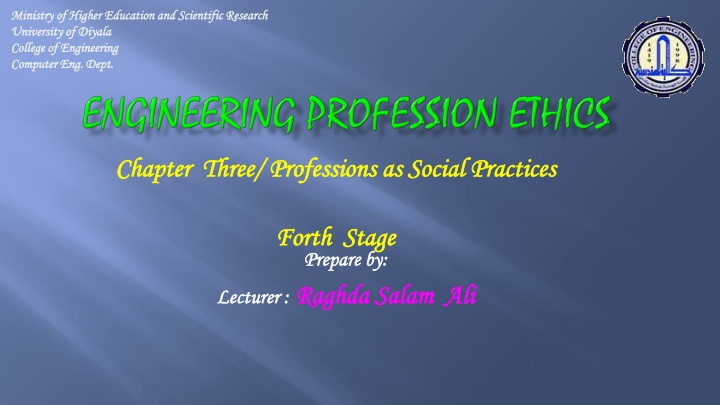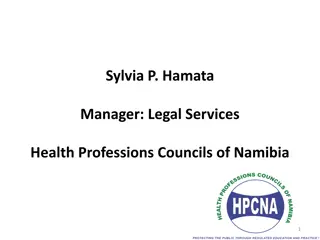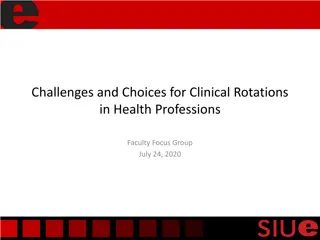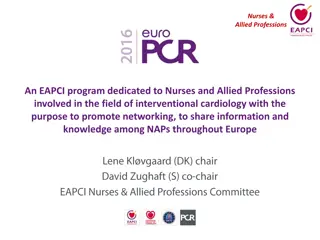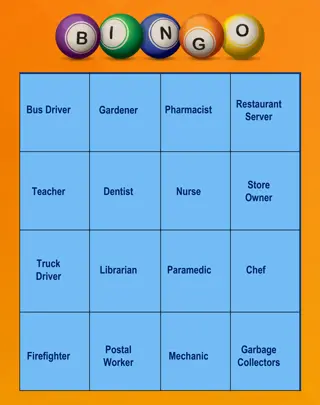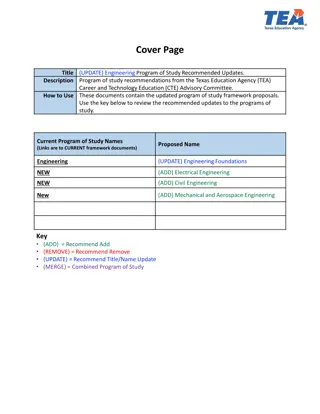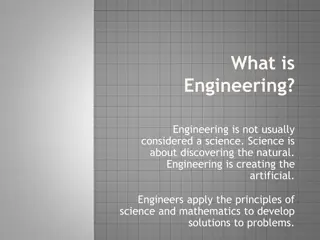Engineering as a Professions Assessment
Distinguishing between job, occupation, and profession in the context of engineering. Exploring the meaning of profession and professional, highlighting the characteristics that set engineers apart. Understanding the essence of professional engineering and how engineers perceive themselves and are viewed by the public.
Download Presentation

Please find below an Image/Link to download the presentation.
The content on the website is provided AS IS for your information and personal use only. It may not be sold, licensed, or shared on other websites without obtaining consent from the author.If you encounter any issues during the download, it is possible that the publisher has removed the file from their server.
You are allowed to download the files provided on this website for personal or commercial use, subject to the condition that they are used lawfully. All files are the property of their respective owners.
The content on the website is provided AS IS for your information and personal use only. It may not be sold, licensed, or shared on other websites without obtaining consent from the author.
E N D
Presentation Transcript
Ministry of Higher Education and Scientific Research Ministry of Higher Education and Scientific Research University of Diyala University of Diyala College of Engineering College of Engineering Computer Eng. Computer Eng. Dept. Dept. Chapter Three/ Chapter Three/ Professions as Social Practices Professions as Social Practices Forth Stage Forth Stage Prepare by: Prepare by: Lecturer : Raghda Raghda S Salam alam Ali Ali Lecturer :
In order to determine whether engineering is a profession, the nature of professions must first be examined. As a starting point, it will be valuable to distinguish the word profession from other words that are sometimes used synonymously with profession : job and occupation. Any work for hire can be considered a job, regardless of the skill level involved and the responsibility granted. Engineering is certainly a job engineers are paid for their services but the skills and responsibilities involved in engineering make it more than just a job. Similarly, the word occupation implies employment through which someone makes a living. Engineering, then, is also an occupation.
How do the words job and occupation differ from profession? The words profession and professional have many uses in modern society that go beyond the definition of a job or occupation. One often hears about professional athletes or someone referring to himself as a professional carpenter, for example. In the first case, the word professional is being used to distinguish the practitioner from an unpaid amateur. In the second case, it is used to indicate some degree of skill acquired through many years of experience, with an implication that this practitioner will provide quality services. Neither of these senses of the word professional is applicable to engineers.
There are no amateur engineers who perform engineering work without being paid while they train to become professional, paid engineers. Likewise, the length of time one works at an engineering-related job, such as an engineering aide or engineering technician, does not confer professional status no matter how skilled a technician one might become. To see what is meant by the term professional engineer, we will first examine the nature of professions.
First of all we can focus on how the engineers view themselves, and the others are how the public at large view them. The engineers view themselves as problem solvers. Engineering is enjoyable, engineering benefits people provides a public service. Engineering provides the most freedom of all professions, and engineering is an honorable profession. How the public views engineering? We can see the engineers role is at utilitarian where there is a cost benefit analysis of whatever they are doing, engineers as positivist they have to have a positive orientation towards life, towards the safety and health or issues of the public at large. They cannot say like solution is not possible, they need to have they should believe like every problem it must be having a solution, because they are taken to be as problem solvers.
what we see over here like they are taken to be like applied physical scientists, because they need to work on the design and find out like how it is working. They have a socialist approach engineers and drivers for converting technology to their benefit. And they have to take rational, logical and systematic approaches to problem solving; which tend to alienate engineer from the public because of the technicalities. So, sometimes what happens the general public at large may not understand the in depth technical issues involved in it. But it is a great responsibility and challenge for the engineers to translate that technology into something which is usable and which is in the benefit for the public at large. So, these are 2 viewpoints which the engineers have about themselves and what the public at large have about the engineers.
Second, a social practice is inconceivable without this distinctive aim. We cannot imagine medicine apart from the aim of producing health or law without the aim of producing justice A practice may also produce other goods, such as money, social prestige, and power, but it is these goods especially associated with the practice that interest us here and that are especially related to its moral legitimacy.
Third, the aims of a social practice must be morally justifiable aims. Both health and justice are morally praiseworthy aims. Fourth, the distinctive aim of a social practice provides a moral criterion for evaluating the behavior of those who participate in the social practice and for resolving moral issues that might arise in the practice.
The advantage of this account of professionalism is that it has a distinctively moral orientation and characterizes the professions as institutions that must be not only morally permissible but also aim at some moral good. There cannot be a profession of thievery or a profession of torturing because these occupations are inconsistent with ordinary morality.
aThere are two models of the professional 1- The Business Model According to the business model, an occupation is primarily oriented toward making a profit within the boundaries set by law. Just like any other business, a profession sells a product or service in the marketplace for a profit; the major constraint on this activity is regulation imposed by law. If people ordinarily called professionals, such as doctors, lawyers, or engineers, followed this model, their claim to professionalism would be severely limited.
2- The Professional Model This model offers a quite a different picture of occupations such as medicine, law, and engineering. Crucial to the professional model is the idea that engineers and other professionals have an implicit trust relationship with the larger public. The terms of this trust relationship, sometimes referred to as a social contract with the public, are that professionals agree to regulate their practice so that it promotes the public good. In the words of most engineering codes, they agree to hold paramount the safety, health, and welfare of the public.
